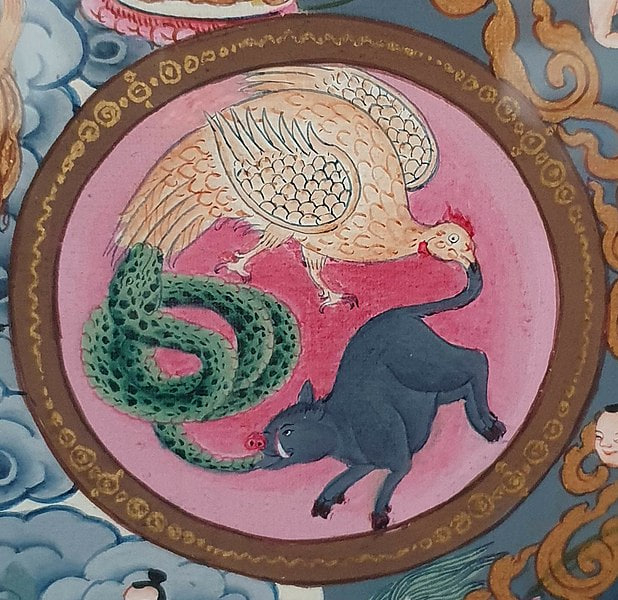The Three Poisons

In his initial teachings, the Buddha highlighted the existence of the Three Poisons as the source of many challenges in our lives and the world. These three poisons, greed, hatred, and delusion, are fundamental principles within Buddhist doctrine. They stand as the root causes of suffering, obstructing the path toward spiritual development and enlightenment.
Greed (Raga) encompasses an excessive fixation on material possessions, sensory pleasures, and desires, giving rise to attachment and insatiable cravings. This inclination toward accumulation leads to discontentment and contributes to an unending cycle of suffering by fostering a ravenous yearning for more.
Hatred (Dosa) denotes aversion, anger, ill-will, and any manifestation of antagonism or negativity directed at oneself or others. It spawns discord, disharmony, and emotional upheaval, adding to the burden of suffering and prolonging detrimental cycles.
Delusion (Moha) symbolizes ignorance or misconstruing the genuine essence of reality. It encompasses misperception, misinterpretation, and adherence to skewed perspectives. Delusion clouds the comprehension of impermanence, interdependence, and the origins of suffering.
Regarded as the fundamental sources of suffering, the Three Poisons entangle individuals within the cycle of birth, death, and rebirth. The journey toward liberation and enlightenment entails acknowledging, facing, and transcending these poisons through ethical behavior, mindfulness, and wisdom. By eradicating greed, hatred, and delusion, practitioners can attain a state of clarity, compassion, and liberation from suffering.










